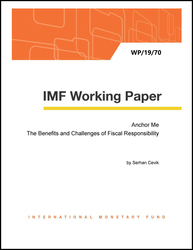
Anchor Me: The Benefits and Challenges of Fiscal Responsibility
This paper discusses the benefits and challenges of implementing a rule-based fiscal responsibility framework, using the Philippines as a case study. It estimates structural measures of the fiscal stance over the period 1980–2016 and applies a stochastic simulation model to determine the optimal set of fiscal rules. The empirical analysis indicates that discretionary fiscal policy has been procyclical, and the degree of procyclicality has increased in recent years. While the national government’s non-binding ceiling on the overall budget deficit is helpful, it does not constitute an appropriate operational target to guide fiscal policy over the economic cycle and necessarily ensure that the fiscal stance meets the government’s intertemporal budget constraint. To this end, using stochastic simulations, this paper makes the case for a well-designed fiscal responsibility law that enshrines explicit fiscal rules designed for countercyclical policy and long-term debt sustainability, and an independent fiscal council to improve accountability and transparency.
Publication date: March 2019
ISBN: 9781498302937
$18.00
Add to Cart by clicking price of the language and format you'd like to purchase
Available Languages and Formats
| English |
Prices in red indicate formats that are not yet available but are forthcoming.
Topics covered in this book
This title contains information about the following subjects.
Click on a subject if you would like to see other titles with the same subjects.
procyclicality , structural budget balances , fiscal rules , output gap , countercyclical , budget balance , fiscal operation , rule-based
Summary
Copyright © 2010 - 2026
Powered by:
AIDC



